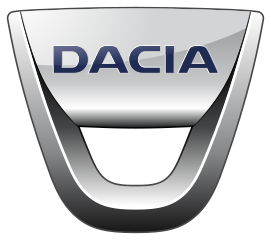Content
Both the UK Government and regulators have, moreover, explored how blockchain technology might be used to improve their own internal processes. For example, in addition to the examples relating to the COVID-19 pandemic highighted at question 3, in 2016 the UK Government tested the use of a blockchain-based system to distribute welfare payments. An immediate example of such a touch point is the fifth Money Laundering Directive as implemented in the UK (“MLD5”). Because of the complications of CGT tax rules, and the particularly complex nature of cryptocurrencies, it’s always worth seeking expert tax advice on this and your other investments. ’) raised the alarm on 11 January warning that investing in crypto assets, or investments and lending linked to them, generally involved taking very high risks with investors’ money.
- On this point, the general consensus, supported by the Legal Statement of the UKJT, is that a statutory “signature” requirement can be met by a private key, or where the code element of a smart contract is recorded in source code.
- They function autonomously, outside of traditional banking and government systems.
- HMRC’s view is that only in exceptional circumstances would it expect individuals to buy and sell crypto assets with such frequency, level of organisation and sophistication that the activity amounts to a financial trade.
There are now Utility Tokens, Security Tokens, Currency Tokens, Reward Tokens, Asset Tokens and then some. Hopes that the US-China trade dispute may yet be brought to a successful conclusion has also hurt the “yuan play”, which would have it that Chinese investors are buying bitcoin as a hedge and to effect capital flight.
Expert Help With Cryptocurrency Tax Issues
For the vast majority of us cryptoasset holders, our cryptocurrencies are being held as a personal investment which means it is fairly likely we will be expected to pay Capital Gains Tax when we decide to dispose of them. If however, we are one of the growing number of people who receive cryptoassets from an employer as a form of payment or as a result of another process such as mining, then we could well be expected to pay Income Tax and National Insurance contributions. Being a victim of fraud or theft of a crypto-asset does not amount to a disposal and the individual cannot claim a loss for capital gains tax. If someone pays for and receives crypto-assets which turn out to be worthless, they may be able to make a negligible value claim to HMRC.
If consumers invest in these types of products, they should be prepared to lose all their money. It should be remembered that HMRC’s guidance is based in its interpretation of existing tax laws that were not designed for cryptoassets. Therefore, although it is a helpful steer to their tax treatment, the tax law may evolve over time, as tax disputes over cryptoassets are tested in the law courts. In such cases employers do not have to operate PAYE – the individual must declare and pay HMRC the income tax due, using the employment pages of a Self-Assessment return.
How Do I Calculate The Capital Gains Position?
This may also be influenced by the PRA’s warning to the CEOs of UK-authorised banks, insurance companies and large complex investment firms discussed at question 8 above. The BoE in March 2018 observed that systematically important UK financial institutions had negligible exposure to cryptoassets and to the ecosystem around them. The FCA began its own innovation project in 2014, which consists of a Regulatory Sandbox, an Innovation Hub and a Global Financial Innovation Network (“GFIN”). This is in addition to FCA’s Digital Sandbox launched in May 2020 in response to the pandemic, further described at question 3 above. The Regulatory Sandbox allows businesses to test innovative products, services, business models and delivery mechanisms with real consumers in a controlled environment. The FCA’s Innovation Hub provides a means by which new and established businesses—both regulated and non-regulated—can introduce innovative financial products and services to the market, with support from the FCA on the application of the regulatory framework. The GFIN was launched in January 2019 in collaboration with 38 other financial regulators.
Ultimately, the way these digital transactions are accounted for is all down to self-assessment. You’re required to tell HMRC what you’ve been trading in, in http://demots.techseria.com/meet-graham-sinclair-sri-polymath/ the same way you would when talking about sterling transactions. This wallet has both a public key and a private key and both can be ‘hot’ and/or ‘cold’.
According to the Bank of England, since cryptocurrencies lack classical definitional characteristics, they are not considered ‘money’ and do not pose a systemic risk to the stability of the banking ecosystem. However, because the legal consequences, regulations, and status of crypto assets and currencies can change depending on their nature, type, and usage, the FCA and the Bank of England have issued a range of warnings and guidance about their use. Those warnings concern the absence of regulatory and monetary protection, the status of cryptocurrencies as stores of value, and on the dangers of speculative trading and volatility. As far taxes are concerned, What is Bitcoin investing in cryptocurrency is akin to investing in other assets such as stocks, bonds, and the sale of rental properties. This means that capital gains and losses rules apply when you ‘dispose’ your assets, and in this case your cryptocurrency. The landscape of cryptocurrencies is a popular but incredibly fluid one, so keeping yourself clued-up and one step ahead of the game could be the difference between making or losing money on that latest investment. Whilst you might already be allocating a few minutes here and there to keep afloat of the cryptocurrency market, have you ever considered the tax implications of this digital currency?
Accounting For Your Crypto Transactions
With the value of some crypto assets, especially Bitcoin, rising significantly over the last year, it is inevitable that people will be curious about the tips and traps when investing. As a developing area of tax, you may be unsure as to whether your cryptoasset profits should be included on your annual return, or you may have uncertainty over undeclared historic profits or gains.
Overall, be aware of the fact that your crypto portfolio just like your shares portfolio, if you make a profit, it will be liable for tax. It has become more common, particularly for companies operating within the crypto-space, for employees to be paid in cryptocurrencies as opposed to cash. If the cryptocurrency is a readily convertible asset it will be subject to PAYE – otherwise it uk tax cryptocurrency trading will be taxable as a benefit in kind. This will also affect which type of National Insurance contributions are payable. Financial advisers can help you find the right investment products and avoid those that are unsuitable for you. Absolute return funds use complicated financial techniques to go against the market, which can be risky and lead to losses if things don’t go as planned.
It creates a new framework for cooperation, promoting information and knowledge sharing amongst regulators on emerging innovation trends, tests, initiatives and policies. It also provides firms with an environment in which to trial cross-border solutions. Finally, in 2019 the FCA consulted on whether a cross-sectoral sandbox or similar mechanism is needed to ensure a consistent and efficient approach to emerging technologies. Taking this together, a broadening of the UK’s legislative framework to encompass a wider range of cryptoassets seems likely. The proposed framework establishes uniform rules in relation to the authorisation and supervision of cryptoasset issuers and service providers, and will bring significant stablecoins under government control. While the UK will not be required to implement any resultant EU legislation, it will undoubtedly influence the UK’s approach. There is no blockchain-specific legislation or regulatory rules addressing blockchain technologies in the UK.
Cryptoassets received as earnings from employment, which do not meet the definition of RCAs, are still subject to income tax and National Insurance contributions. If an employer has a UK tax presence they must deduct and account to HMRC for the income tax and Class 1 National Insurance contributions due under PAYE, based on the best estimate that can reasonably be made of the cryptoasset’s value. If the employer cannot deduct the full amount of income tax due from employment income they must still account to HMRC for the balance within 90 days after the end of the tax year. Exchange tokens like Bitcoin can be exchanged on one or more token exchanges in order to obtain an amount of money. On that basis, it is HMRC’s view that ‘trading arrangements’ exist or are likely to come into existence at the point cryptoassets are received as employment income. All contents on this site is for informational purposes only and does not constitute financial advice.
Traders, says Thomas Gibbs, can avoid capital gains tax paying income tax on tax on the profits of those trades. The first category is speculative in nature and similar to gambling activities.
It’s worth bearing in mind that because trading activity fluctuates, you could well fall within any and all of these three categories over a given period. First and foremost, it would be beneficial to define cryptoassets – and they are defined by HMRC as “cryptographically http://flogarecords.com/label/10-best-cryptocurrency-exchanges-to-buy/ secured digital representations of value or contractual rights that can be transferred; stored; and traded electronically”. This site uses cookies which are small text files that are placed on your machine to help the site provide a better user experience.
Is Cryptocurrency a good investment in 2021?
Conclusion. If you want to obtain direct exposure to the demand for digital currency, Bitcoin is a smart investment. Bitcoins might help diversify your portfolio because their use is expected to grow in popularity over time. It also has the potential to become the first truly international currency in the long run.
If you do make an error or omission elating to your Bitcoin or cryptoasset sales, it always in your best interest to make a voluntary disclosure to HMRC to address the issue as opposed to waiting for HMRC to contact you. If a financial penalty is due, it is likely to be lower with a more limited timeframe on how far back the disclosure extends.
Stock Taxes
If someone is selling his old car every couple of years then that is clearly not with a view to make a profit. If however the same cryptocurrency trading person was buying and selling a new car every day then this would likely be deemed as trading in the self-employed sense.
An airdrop is the term used when a cryptocurrency project distributes free tokens or coins to the holders of existing tokens or coins, often as a form of advertising. You can offset any current year or prior year capital losses against crypto exchanger crypto gains. Note that if your total proceeds received are in excess of £49,200 in the tax year to 5 April 2021, you must still report the transactions to HMRC, even if your net gains are less than £12,300 and no CGT is due.


















